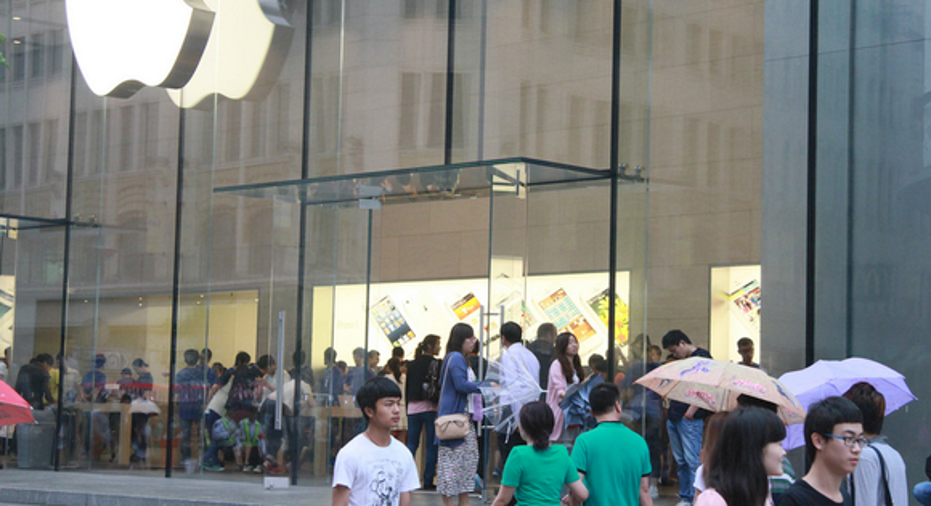Apple, Inc.'s Share-Repurchase Program Is Moving the Needle ... a Lot

Apple's share-repurchase program is often characterized as an "aggressive" effort. But rarely is the program put into perspective. It's important for Apple investors to understand the impact of the program because its effectiveness goes beyond that of the typical share-buyback program of publicly traded companies.
Share-repurchase programs: Theory versus practiceShare repurchases are simple. When a company repurchases shares, it uses free cash flow, which it could otherwise be putting to work in business expansion, acquisitions, or dividends, to reduce the count of total shares and, in doing so, increase the per-share intrinsic value of each share for shareholders. Further, management's decision to buy back shares suggests the company believes its stock is at least fairly valued -- or better yet, undervalued.
But the problem is share repurchases are often much better in theory than in practice. In reality, there are three reasons a share-repurchase program may not be generating meaningful value for shareholders:
- A company may be overpaying for its shares, thus reducing the total intrinsic value attributable to shareholders.
- The opportunity cost may be too great. In some cases, strategic acquisitions, expansion, or investments in the underlying business could represent better ways to use the cash.
- The repurchase program may only be moderating the effects of stock options for employees and not really making a dent.
Apple's rapidly declining share countWhat makes Apple's share repurchase program so valuable is that it is just as good in practice as a share repurchase program could be in theory in ideal conditions. Apple is buying back undervalued shares in huge volume with cash that couldn't be used any better elsewhere.Consider the current value of Apple shares. Following a huge year of growth, in which EPS soared 43%, the stock trades at just 13 times earnings. Of course, there are a range of ways to illustrate the value of Apple stock -- and all of them suggest the security is undervalued. Furthermore, Apple's average share price throughout the entirety of its repurchase program, which didn't really begin until 2013 (before 2013, share repurchases were only enacted to mitigate dilution), is about $90 -- well below where shares are trading today.And the sheer volume of share count reduction since the company began its repurchase program is downright mind-boggling. Consider the impact of Apple's aggressive share repurchases on its EPS over the last 12 months, evidenced by the discrepancy on net income growth and EPS growth. During the company's fourth fiscal quarter of 2014, net income increased 31.4%, while EPS jumped 38.1%.
Apple has even increased the value of its share repurchase program by being opportunistic when it recognizes shares are trading exceptionally low, leveraging the impact of the buyback.
With all this in mind, investors should be all for the tech giant's aggressive repurchase program. Indeed, the company's repurchase program is a key reason for investors to buy and hold this stock for the long haul.Apple has already spent $104 billion on share repurchases, $36 billion of which occurred in fiscal 2015 alone. The company has $46 billion remaining to spend on share repurchases, and the program expires at the end of March 2017. But keep in mind that Apple has opted to increase its share repurchase authorization every year since the program was first initiated.
The article Apple, Inc.'s Share-Repurchase Program Is Moving the Needle ... a Lot originally appeared on Fool.com.
Daniel Sparks owns shares of Apple. The Motley Fool owns shares of and recommends Apple. Try any of our Foolish newsletter services free for 30 days. We Fools may not all hold the same opinions, but we all believe that considering a diverse range of insights makes us better investors. The Motley Fool has a disclosure policy.
Copyright 1995 - 2015 The Motley Fool, LLC. All rights reserved. The Motley Fool has a disclosure policy.



















